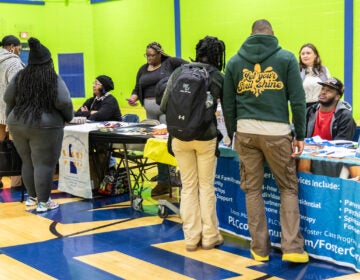Wilmington indoor farm for formerly incarcerated people praised by Barr, Carson from Trump’s Cabinet
Second Chances Farm hires only formerly incarcerated men and women to grow hydroponic crops in a Wilmington warehouse. Federal officials have noticed.
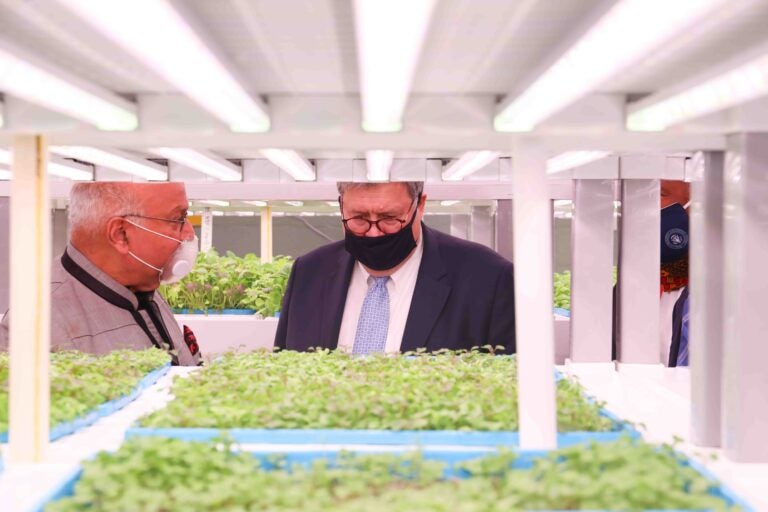
U.S. Attorney General William Barr speaks with Ajit George, founder of Second Chances Farm. (Saquan Stimpson for WHYY)
U.S. Attorney General William Barr and HUD Secretary Ben Carson flew into Wilmington Monday to tour and showcase an indoor hydroponic farm run by men and women returning to society after being incarcerated.
They grow greens for private customers and local restaurants at the Second Chances Farm, a fledgling for-profit business located in an old warehouse on the edge of the Riverside housing project. The site is in a federal Opportunity Zone whose investors are eligible for tax credits.
The two members of President Trump’s cabinet were joined by other administration officials as they toured the vertical rows of lettuce, basil and other crops.
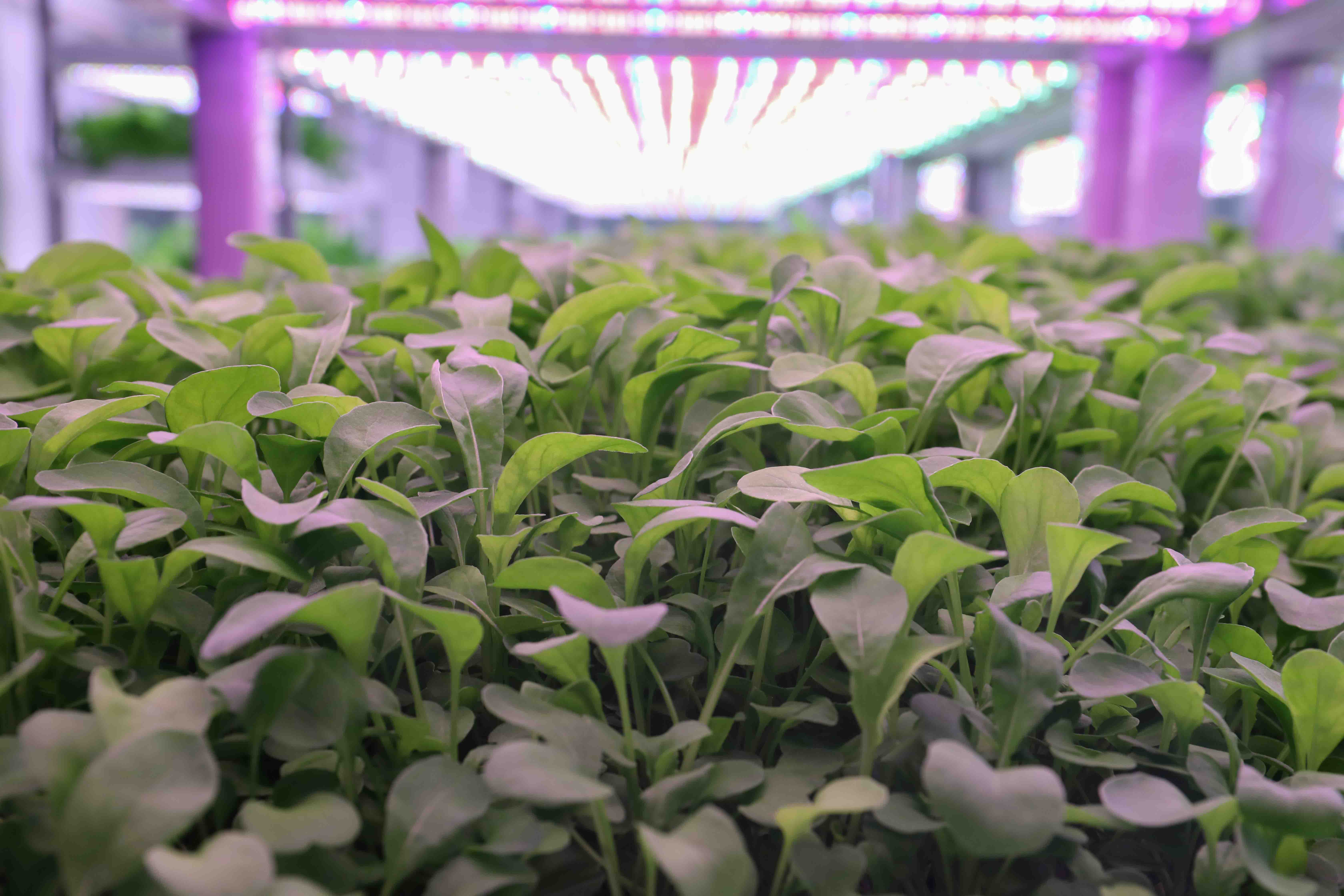
Later they heard from the directors and employees of the business, which is planning to open a second indoor farm in North Philadelphia next year.
One employee is KaLief Ringgold. He spent more than 14 years in prison and spoke about leaving a life of crime in a city engulfed by gun violence and addiction.
“The name of this place is Second Chances, but I really believe this is my last chance. It might be my only chance to do something good,” Ringgold said. “While I was sitting here my phone buzzed. My friend was killed this morning. I don’t know nobody who died from COVID-19. Everyone I know died from gunshots and overdoses. So that could be my life.”
Barr and Carson praised the operation, which also produces products like its own “basil paste.”
“What impressed me about this place is, it’s not just an employer but is attentive to the special needs of its workforce, anything from continuing problems with drugs to knowing how to resist drugs, to practical problems about getting the proper documentation so they can function and get around in society,” Barr said. “That seems to me to be a recipe for success.”

Carson pointed out that the Wilmington business was included in a “best practices report’’ of Opportunity Zones that was presented to the president this year.
“I commend you for the tremendous work that’s been done here,’’ Carson said.
He praised founder Ajit George and other farm leaders for assisting formerly incarcerated people who “frequently go [to prison] with little in the way of education and skills and come out with little in the way of education and skills. This is a way to change the trajectory of their lives.”
Kala Siano, who turned 25 on Sunday, spent four years in prison for robbery. Now she’s a Second Chances administrator.
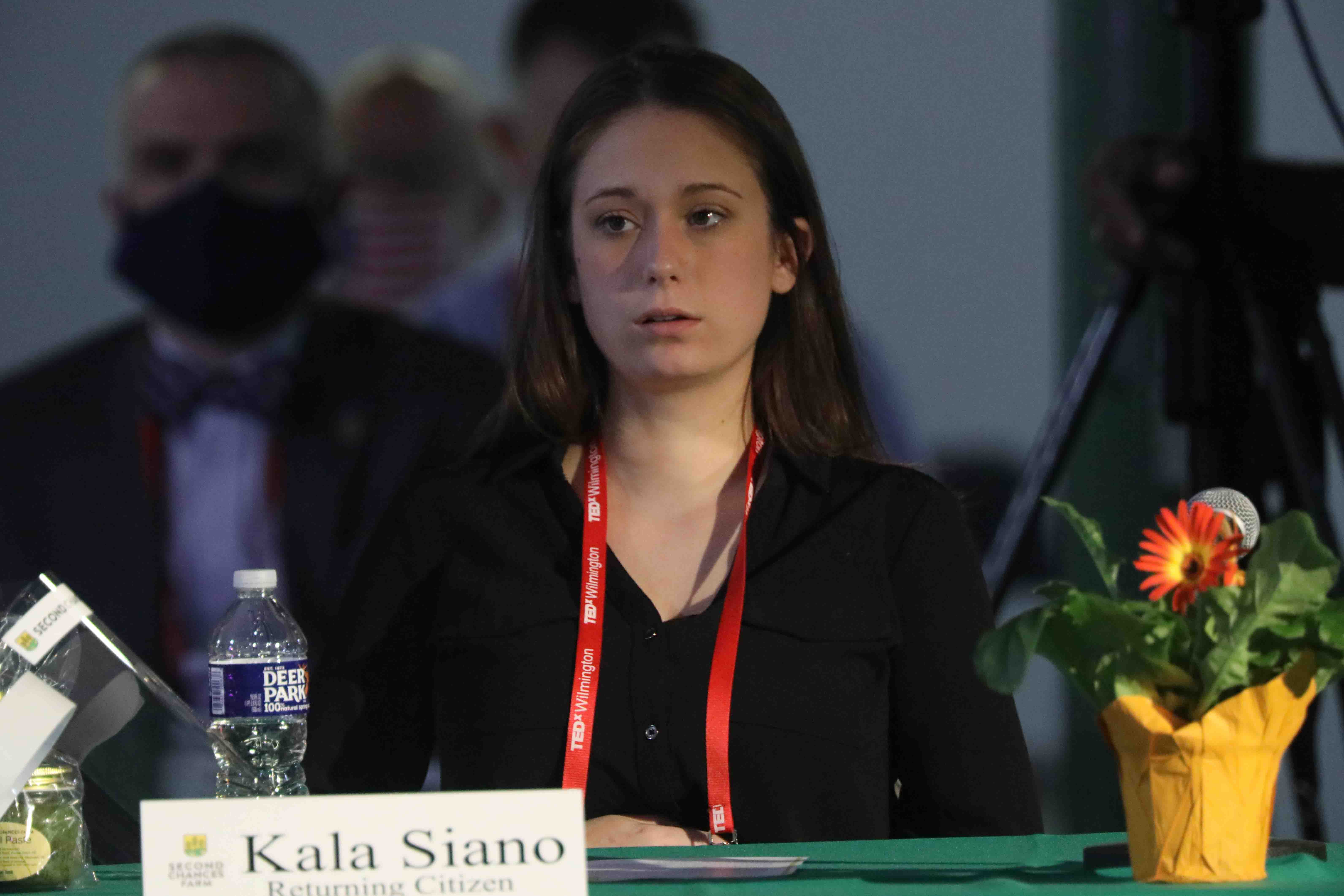
“I just manage all the returning citizens, whether it be issues at home – you can imagine what situations might arise, and scheduling. It’s insanity, but I enjoy it,’’ Siano told WHYY. “I have never had so much responsibility in my life and I think I came out on top with the whole situation.”
Gabrielle Newton, who spent time behind bars on a weapons charge, is now a concierge with the operation’s delivery service.
She now has the “stability of a job that is not paying minimum wage, the prospect of becoming an entrepreneur in the future,” Newton said. “I’m in it for the long run. My family is proud of me. It’s built my pride back up, my self-esteem back up.”
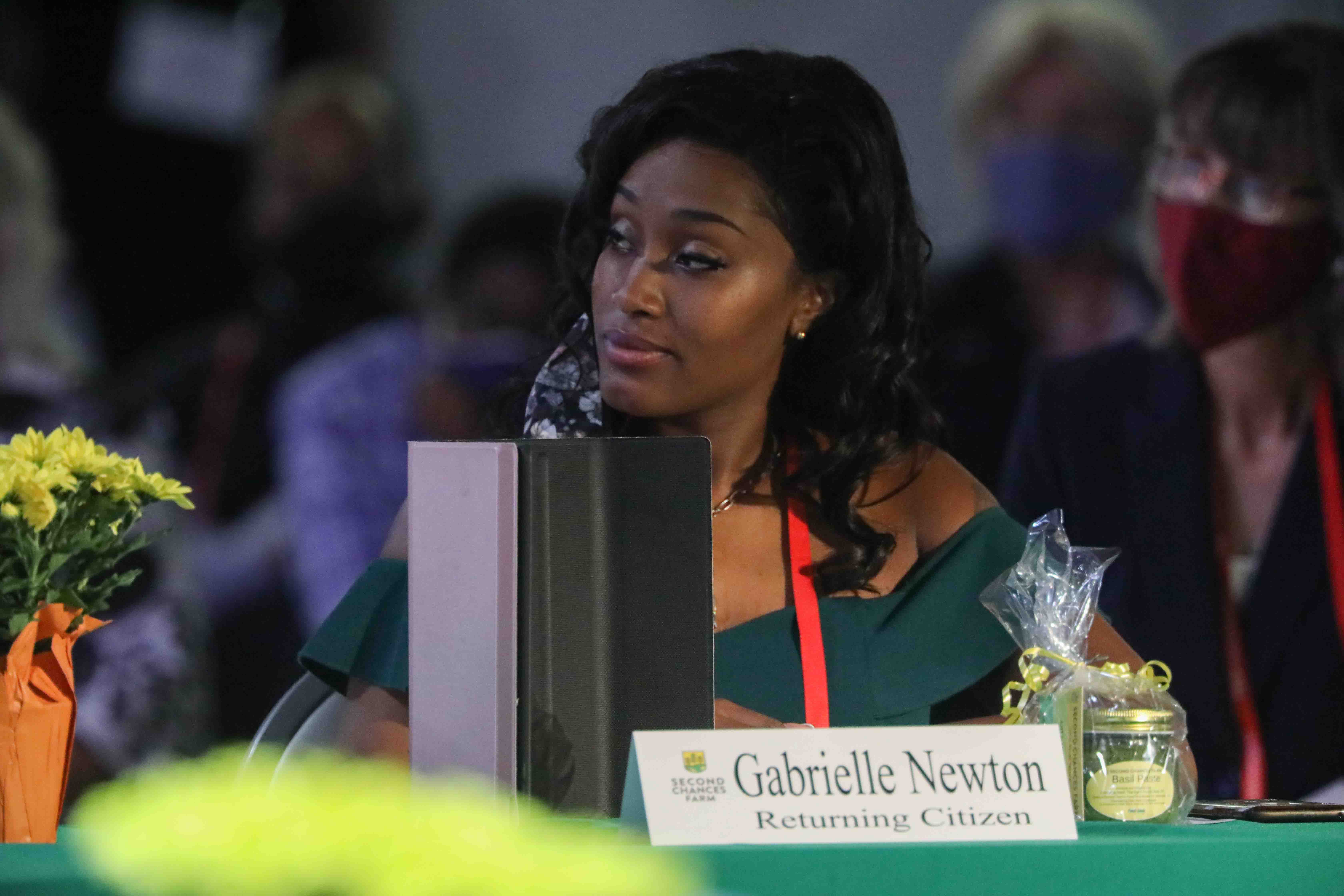
Perhaps the most passionate speaker Monday was Scott Turner, a former NFL player who now heads the White House Opportunity and Revitalization Council and has made several visits to the Wilmington farm.
“It’s so hard to have a second chance, but then to do something with the second chance you’ve been given is sometimes even more difficult. This is a shining example that not only is it possible, but it is necessary,’’ Turner said. “Second Chances Farm to me is going to serve as a catalyst, a model, vehicle, if you will, for the rest of our nation.”
George said the farm seeks to provide more than economic opportunity and job security.
“We give them a chance to earn a living wage, $31,200 [a year], medical benefits, and they are treated with respect,” George told WHYY. “And they don’t have that scarlet letter next to their name.”
WHYY is your source for fact-based, in-depth journalism and information. As a nonprofit organization, we rely on financial support from readers like you. Please give today.




